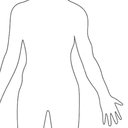The effect of nitrate supplementation on muscle contraction in healthy adults.
Atslēgvārdi
Abstrakts
This study examined the effect of dietary supplementation with inorganic nitrate ([Formula: see text] ) on markers of contractile function in human knee extensors. In a double-blinded, randomized cross-over design, 18 (12 M) healthy participants undertook four days of supplementation with either nitrate-rich beetroot juice (NITRATE; days 1-3: 525 mg [Formula: see text], day 4: 1050 mg [Formula: see text]) or nitrate-depleted beetroot juice (PLACEBO). On the fourth day, isometric knee extension force was assessed during a series of voluntary and electrically evoked (stimulation) tests. In addition, muscular fatigue was examined in two separate continuous-stimulation (0.8 s tetanus with a 1:1 work:rest ratio for 102.4 s) fatigue tests, one with and one without blood flow restriction. There were no differences for maximum voluntary contraction, peak twitch force, half-relaxation time and the force-frequency relationship for stimulations up to 100 Hz between the NITRATE and PLACEBO trials. No differences between trials were observed in the non-restricted fatigue test, however NITRATE was found to attenuate the decline in force during the restricted test, such that the force at the 80 s mark (PLACEBO: 66 ± 11 vs. NITRATE 74 ± 9% of initial force; P = .01) and 102 s mark (PLACEBO: 47 ± 8% vs. NITRATE 55 ± 8%; P < .01) were significantly higher. These results suggest that four days of [Formula: see text] supplementation elicits peripheral responses in muscle that attenuate muscular fatigue during exhaustive exercise under hypovolemic conditions. This ergogenic action is likely attributable to improved Ca(2+) handling in the muscle, or enhanced perfusion during ischemia.



